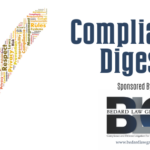In a case that was defended by Khari Ferrell and the team at Frost Echols, with Brendan Little of Lippes Mathias acting as local counsel, a District Court judge in New York has granted a defendant’s motion for summary judgment in a Fair Debt Collection Practices Act case involving a collection letter that was sent to the plaintiff seeking to recover a debt for services that the creditor had not actually provided.
A copy of the ruling in the case of Stark v. Afni can be accessed by clicking here.
The plaintiff opened an account with a telecom carrier for a mobile hotspot device, yet she never received it. She contacted the carrier once to inquire about why she had not yet received the device, but the representative as not able to access the plaintiff’s account because the plaintiff didn’t have her account number. The carrier billed the plaintiff for the services, but the plaintiff didn’t make any payments because she believed she was not obligated to do so because she never received the device and wasn’t using the service.
The carrier placed the account with a collection agency, which sent the plaintiff a collection letter. She contacted the agency and told them to stop sending letters because she wasn’t obligated to pay for the charges. The account was then placed with the defendant, which sent the plaintiff a collection letter. The plaintiff contacted the defendant and disputed the debt. The plaintiff then filed suit, alleging the defendant violated Section 1692e of the FDCPA by representing she owed a debt to the carrier.
Laying out the facts of the case:
- Plaintiff opened the account at issue
- Plaintiff ordered the services to which the debt pertains
- Plaintiff contacted the carrier once, to inquire about the status of the device, but the representative could not access plaintiff’s account because plaintiff did not have her account number handy
- Plaintiff received bills for the services
- Plaintiff did not pay those bills or contact the carrier to dispute the charges
- On the date defendant sent the collection letter, neither the carrier nor defendant had a record of plaintiff disputing the charges
as well as the fact that even a least sophisticated consumer would have known that she had not paid or otherwise resolved the charges with the carrier, the plaintiff could not have been deceived about the status of the debt, ruled Judge Vincent L. Briccetti of the District Court for the Southern District of New York.









